Noble FoKus Apollo review: a premium set of headphones that delivers Olympian audio quality (original) (raw)
TechRadar Verdict
The Noble FoKus Apollo sound fantastic with an incredible sound stage and mostly-well-tuned audio. They also come with some premium trappings like a hardy carry case, loads of adaptors and a battery life that dwarfs most rivals. However the price isn’t the only thing that’ll put some buyers off, with divisive looks and some other features that don’t match up to the competition adding up to a set of headphones that's very good, rather than truly excellent.
Pros
- Incredible sound
- Premium presentation
- Outstanding battery life
Cons
- -
High price - -
Divisive looks - -
Built-in mic issues during testing
Why you can trust TechRadar We spend hours testing every product or service we review, so you can be sure you’re buying the best. Find out more about how we test.
Jump to:
- Two-minute review
- Price and release date
- Specs
- Features
- Design
- Sound quality
- Value
- Should I buy them?
- Also consider
- How I test
Noble FoKus Apollo: Two-minute review
Like the heavily memed girl in the Old El Paso advert, high-end audio company Noble wants to say something with its new FoKus Apollo over-ear headphones: “why not both?”.
The new Noble FoKus Apollo are the first headphones to combine two different types of audio technology under the same band: dynamic and planar magnetic drivers, which should give audiophiles cause for interest. They’re also Noble’s first headphones too, marking a shift from its high-end wireless earbuds and wired in-ear monitors.
To boil down tech jargon, planar magnetic drivers are the current hot trend in personal audio; fragile, expensive and fantastic-sounding, they’ve recently begun cropping up in some of the best headphones, and in (or on) audiophiles’ ears.
Dynamic drivers are the stalwarts that the planar magnets have been replacing: these are reliable, hardy and relatively inexpensive, but are old news to audio fans who have been queuing up to get planar magnetic devices (as proven by the FoKus Apollo appearing as out of stock in plenty of stores I checked).
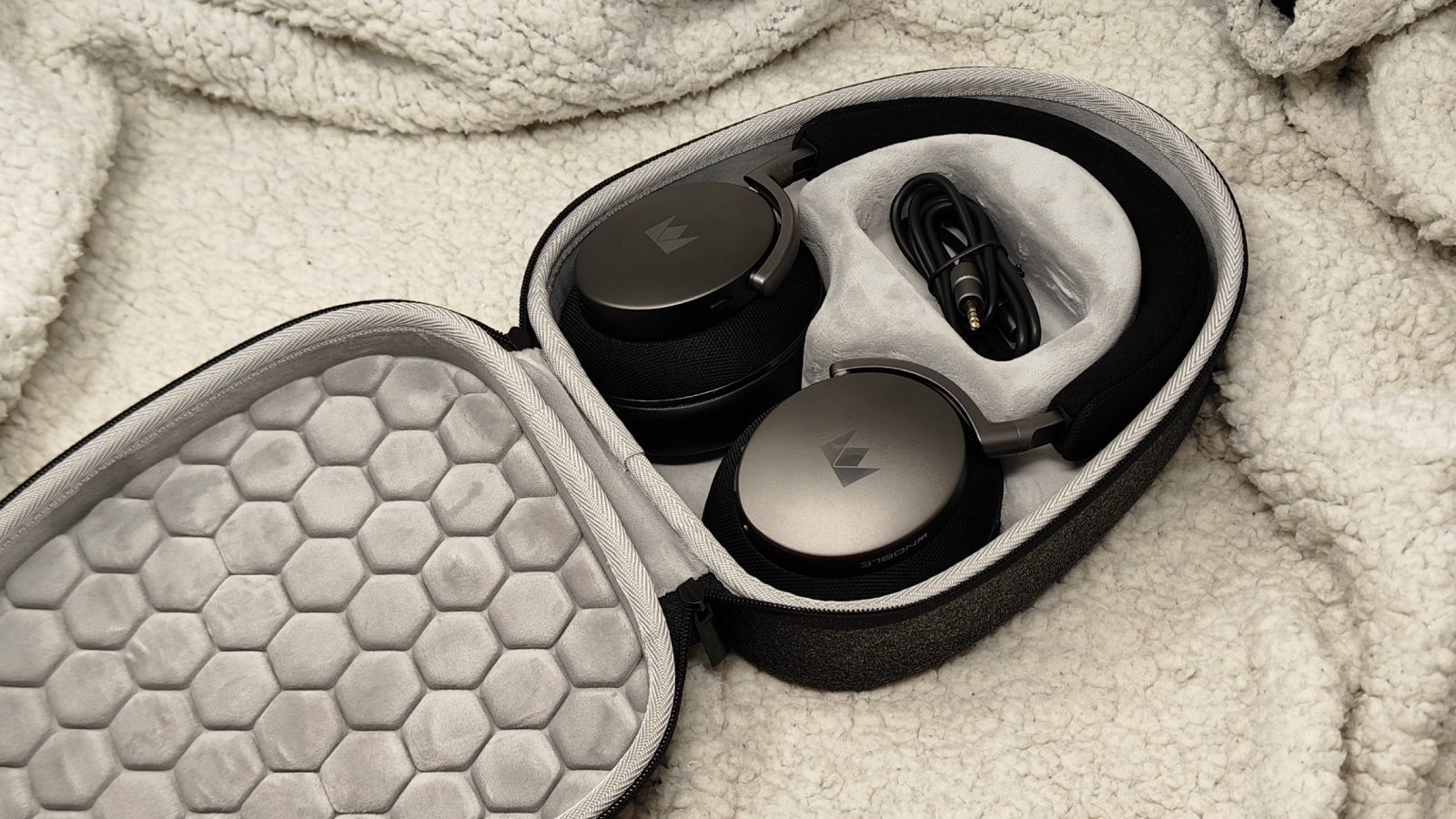
(Image credit: Future)
Opposites come together in the Noble FoKus Apollo, and from a sound perspective it shows – in a good way. These headphones sound fantastic, with a detailed sound stage, high quality audio and lovely balance that provides an enticing neutral sound. I enjoyed using the Apollo so much for their audio chops that I started wearing them for movies, TV shows, meetings, games and just about anything else that requires my ears.
Sound is clearly the focus of the FoKus (I had to do that once, okay?) with the feature set otherwise pretty limited. The noise cancellation is sufficient to take the edge off annoying noises but I could still hear the rumble of buses or thump of heavy rain on windows more than with some other products I’ve tested, so they won't be joining our guide to the best noise-cancelling headphones any time soon.
And although Noble claims you'll get "excellent call quality, with or without the supplied boom mic", I tried many times and could only be heard during my regular Zoom calls when attaching the external supplied mic accessory. The box is pretty jam-packed actually, with Noble giving you a carry case and an assortment of cables, adaptors and extras. You can’t fault the company for offering value for your money.
The battery life of the FoKus Apollo is perhaps even more impressive than its audio chops, with 60 hours of ANC-on listening time or 80 hours of ANC-off playback doubling many other rivals on the market.
My personal low point during my testing of the Apollo was when someone commented how 'nerdy' the headphones looked when worn – audiophiles might be used to this, but the point is, they’re not a chic as other premium options on the market.
And premium is what they are: the Noble FoKus Apollo are expensive headphones, outstripping plenty of rivals. Even with the value added by extra cables and tools in the box, they’re very hard to justify for audiophiles on a budget. If you think your purse or wallet can handle them, though, these are fantastic headphones that blow most of their rivals out of the water – for sound quality alone.
Noble FoKus Apollo: Price and release date
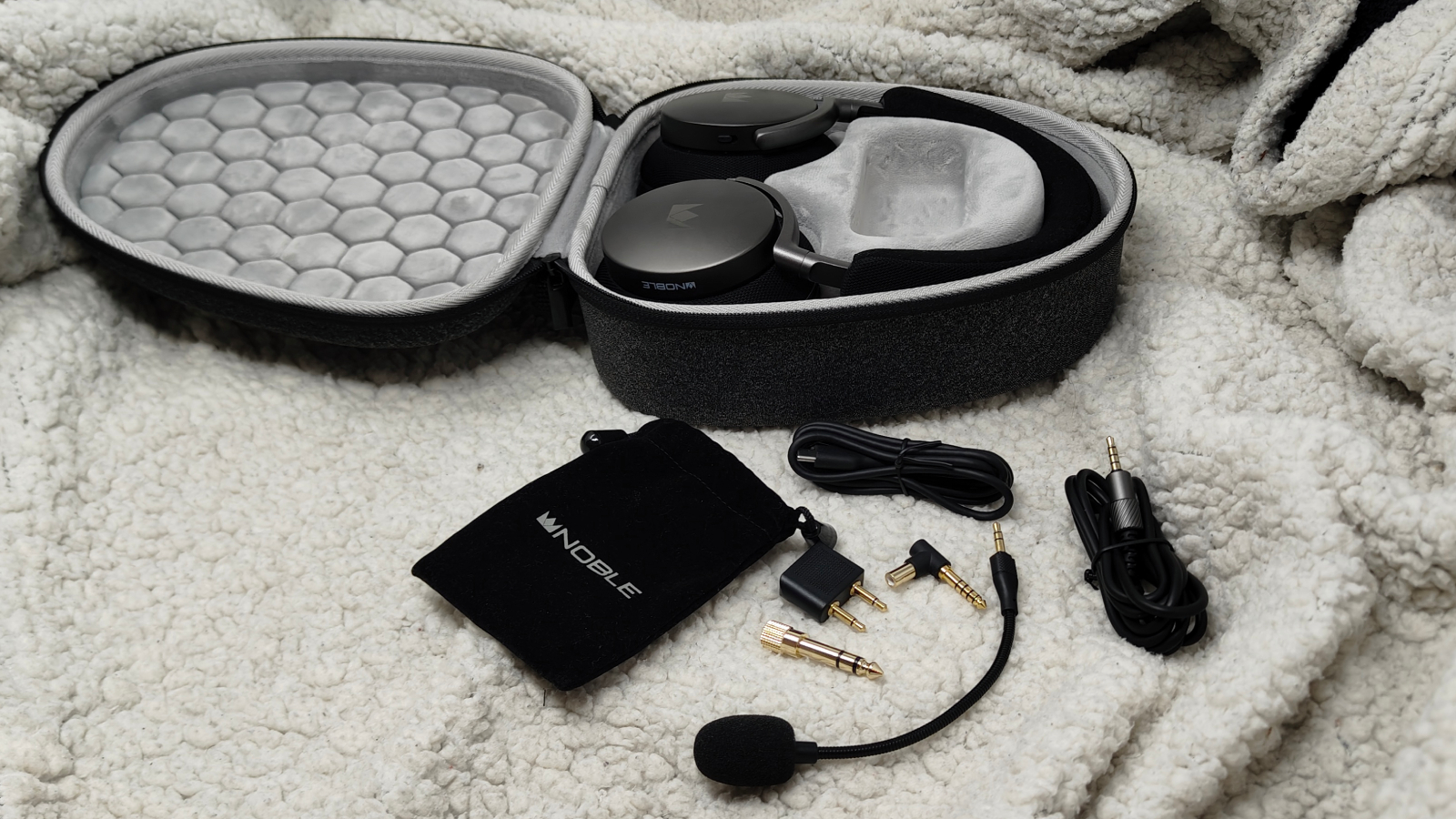
(Image credit: Future)
- Released in September 2024
- Costs 649/£589/AU649 / £589 / AU649/£589/AU999
The Noble FoKus Apollo are not a cheap pair of headphones by any means. You have to shell out 649/£589/AU649 / £589 / AU649/£589/AU999 to pick up a pair, which makes these some decidedly high-end cans for most of us.
You’re paying more for these headphones that best-in-class options like the Sony WH1000XM5, Bose QuietComfort Ultra Headphones or Bowers & Wilkins PX8, though a select few options aimed squarely at audiophiles do cost more.
It’s worth noting that the price includes extras like a carry case, 3.5mm cord, USB-C cable, several adaptors and a plug-in microphone, so Noble isn’t exactly ripping you off here.
Noble unveiled the FoKus Apollo in the back half of 2024; the headphones seem to be on sale in various regions around the world, either from Noble’s website or from third-party stores, though in some places they’re sold out.
Noble FoKus Apollo review: Specs
Swipe to scroll horizontally
| Drivers | 49mm dynamic + 14.5mm planar magnetic |
|---|---|
| Active noise cancellation | Yes |
| Battery life | 60 hours (ANC on) | 80 hours (ANC off) |
| Weight | 327g |
| Connectivity | Bluetooth 5.3 | 3.5mm jack |
| Waterproofing | NA |
Noble FoKus Apollo: Features
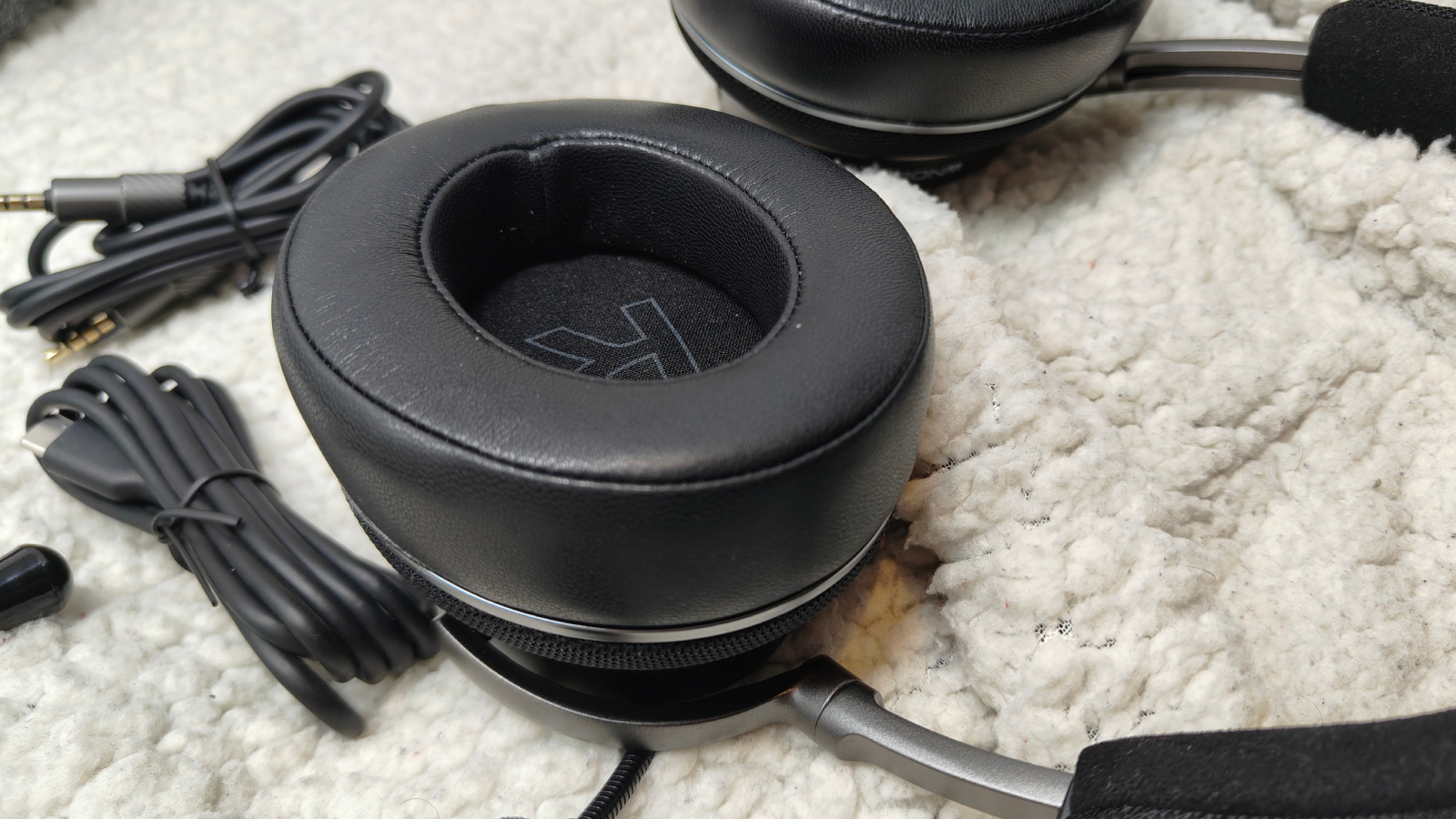
(Image credit: Future)
- Fantastic battery life
- Midweight ANC
- Limited in-app feature set
To use the Noble FoKus Apollo, you can download the Noble FoKus smartphone app – I say ‘can’ because I only downloaded it towards the end of my testing period, and it didn’t add an awful lot to the experience. You can easily use the Apollo without it.
It does give me a handy shopping list of features to run through, though. First up there’s an equalizer, offering 10-band customization for people who know their way around an EQ tab, and six presets for those who don’t (which, to my ears, sounded very similar).
Next is ANC, which can be toggled between on, off or ambient mode. The Apollo’s noise cancellation is decent, but it’s far from industry-leading, so while it stripped away the majority of background sounds, it did always leave a little background hum that other buds and headphones I’ve tested would remove. If background sound was a cheesecake, the Apollo would be skipping that crumbly biscuit base.
The app lets you toggle EQ, ANC, the tone switch for when you adjust settings on the headphones and… not a lot else. It’s a really barebones app, which doesn’t really justify its space on your phone since the EQ is the only feature which you can’t play with on the headphones themselves.
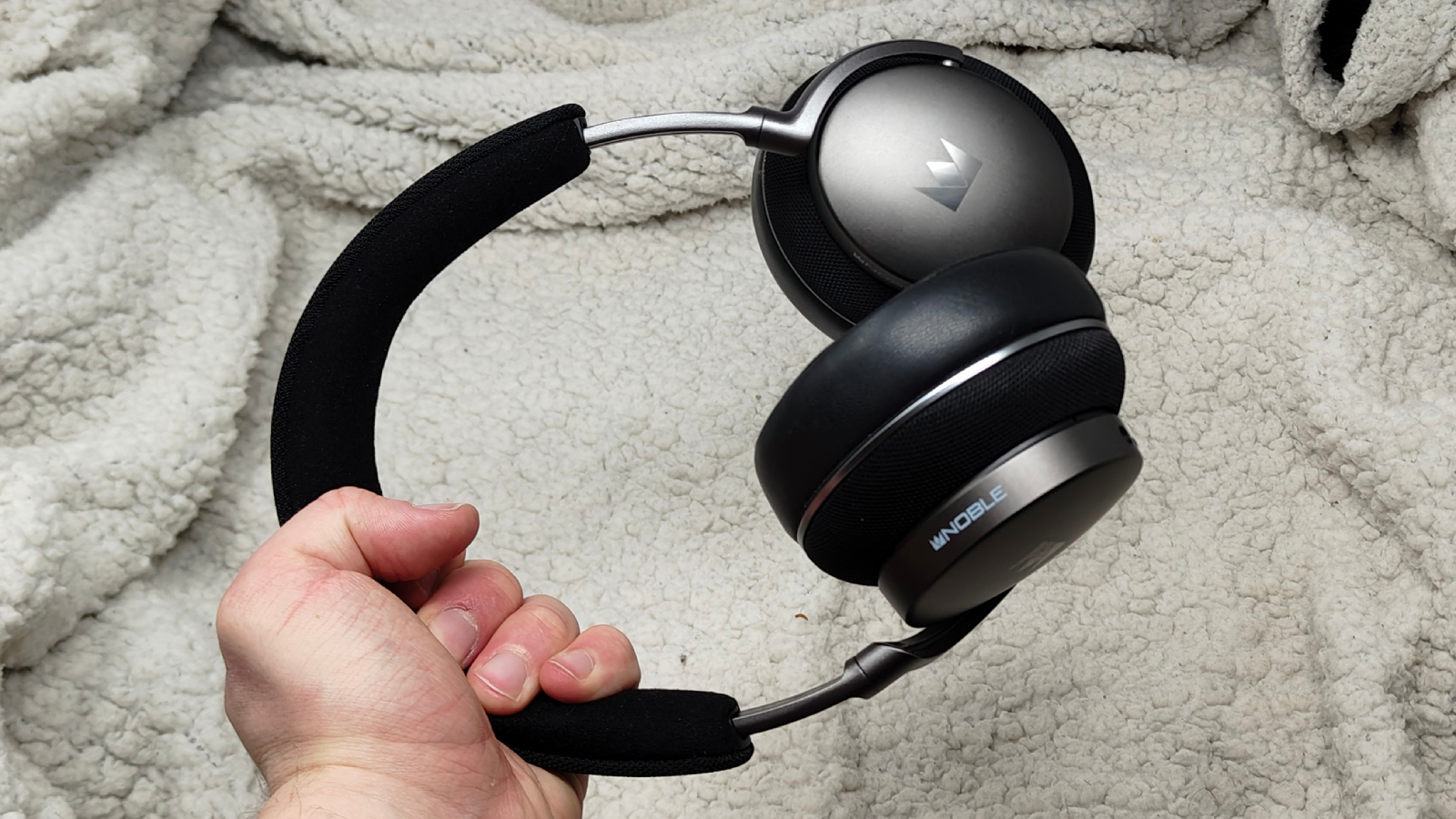
(Image credit: Future)
A lightweight feature set isn’t something to get too heartbroken about, as these are clearly headphones designed with an audio focus. Noble probably doesn't want you to tweak the EQ, and when the sound is as straight from the box as it is here, I get it.
A feature I thought was ‘missing’ – the ability to take calls without attaching the included boom mic – remains an unresolved issue though. I discovered the hard way (in a group meeting when I couldn’t figure out why people couldn’t hear me) that I couldn't seem to get the onboard mics to work during calls and had to attach the included microphone.
Noble reassured me that the three mics per ear cup can handle voice pickup as well as ANC between them, but I conducted several tests in different apps (yes, with the microphone toggled) and whatever I did, the Apollo could only pick up audio if the external microphone was connected.
Thankfully the great battery life ensures that you can enjoy that audio for long periods of time: 80 hours, to be exact (though if you listen with ANC that drops to a still-impressive 60 hours). Given that 30 hours is considered the average lasting power by TechRadar’s staff, that’s a really fantastic figure.
- Features score: 3.5/5
Noble FoKus Apollo review: Design
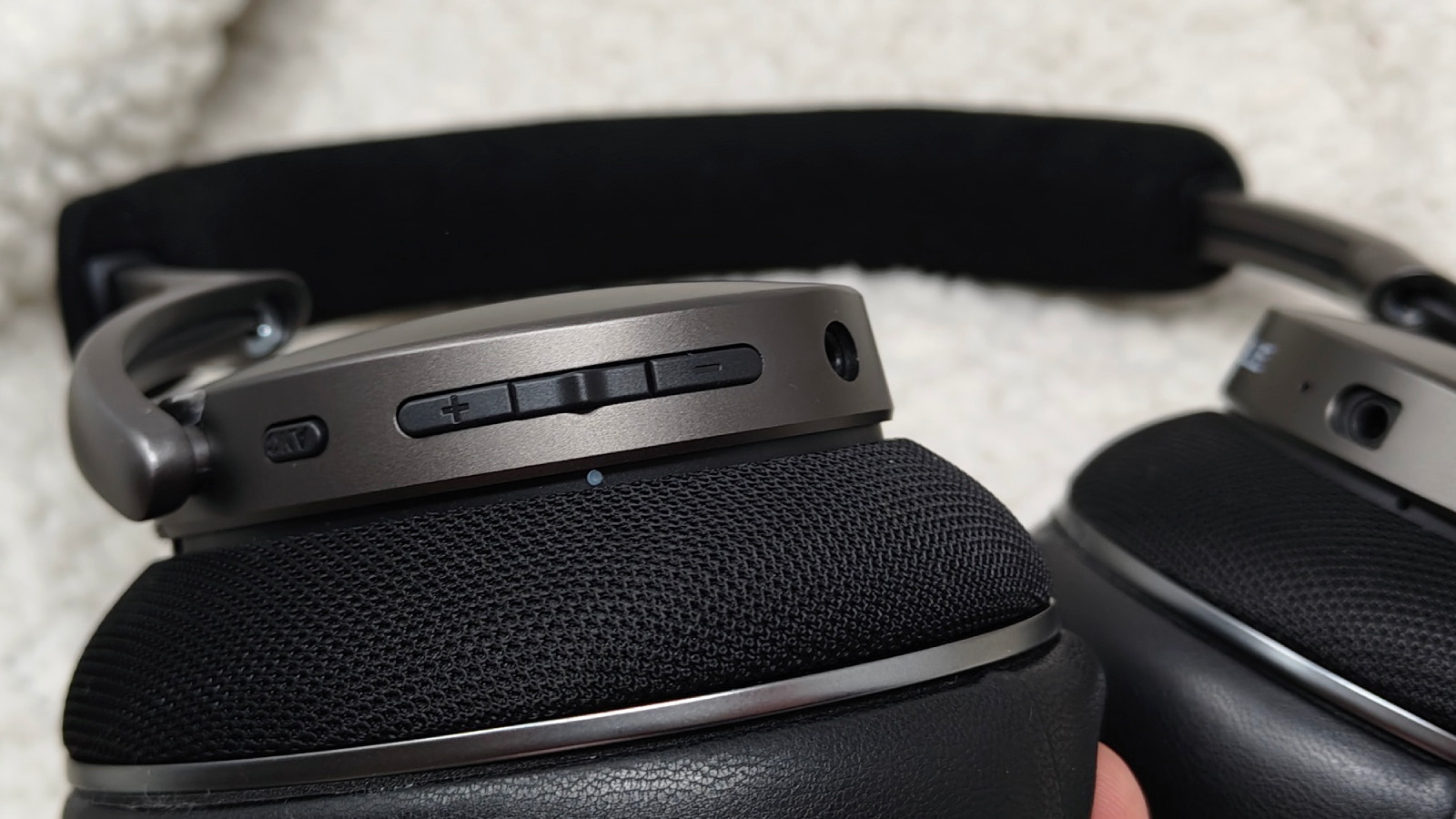
(Image credit: Future)
- Comfortable pads but heavy build
- Loads of buttons and ports
- Divisive looks
The Noble FoKus Apollo look more refined than your average headphones: the comfy padded band, the shiny metal pads with soft leather pads, and thin bands connecting it all make them look as much like an art piece as some headphones. They're also a bit bulkier than many other headphones on the market.
This appearance covers up some flexibility issues though. While the cups can rotate around 180 degrees along the X axis (as in, they can face you or face away from you when on your head), they don’t move around much on the Y axis (as in, they can’t point down or up much, a move which is useful for catering to different head shapes). You also can’t fold up the cans, beyond the band length with some retractable space.
Premium materials ensure that the Apollo feels comfortable to wear, if your head ensures you’re not affected by the flexibility problems, though long periods of listening may bring aches because of the weight of the cans.
Each of the cans bears an orchestra of ports and buttons, which you’ll take a while getting used to. The left can has a microphone mute slider, a USB-C charging port and a 3.5mm jack (for the microphone), while the right can has an ANC toggle, another 3.5mm port, a volume rocker and a power button.

(Image credit: Future)
I couldn’t find information about an IP rating for the Apollo, so I’d recommend caution when using them in potentially-harmful watery environments. Saying that, they survived a pretty heavy rainstorm around my neck.
Due to the thin areas of band and the delicate internals, I always considered the Apollo to be quite fragile during testing, and treated them accordingly – I can’t say for sure whether these things are more susceptible to damage than alternatives, but I made sure to keep them in their case when possible just to be sure!
The one and only color for the FoKus Apollo is gray, as you can see in the image, which has areas of silver and black as well.
One thing I’d be remiss not to flag is the look of the Apollo when on one’s head – they look, for lack of a better word, a bit nerdy (something which was pointed out to me multiple times, making the descriptor 'divisive' feel apt). On all but the biggest heads the cans look huge too, so if you care about aesthetics, it’s something to bear in mind.
- Design score: 3/5
Noble FoKus Apollo review: Sound quality
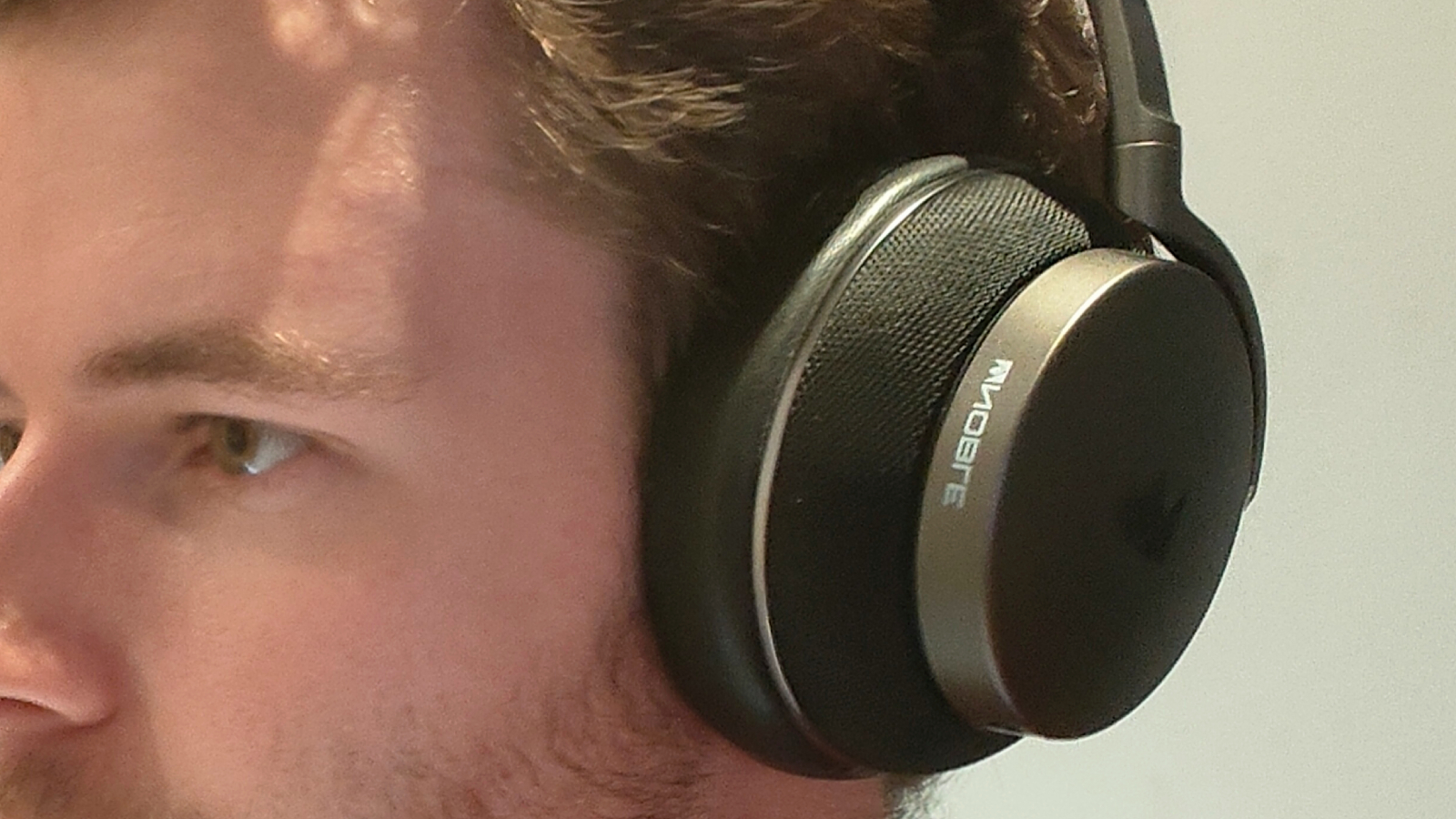
(Image credit: Future)
- Expansive sound stage
- Mostly well balanced
- Performs wonderfully at high volumes
The Noble FoKus Apollo sound amazing. I know, I know, stop the presses: premium headphones that sound great. I’m sure you’re shocked.
As mentioned in the introduction, the Apollo combines a 14.5mm planar magnetic hybrid driver with a 40mm dynamic one, with the combination of both working in tandem to deliver beautifully balanced audio.
To me, the best part of the FoKus Apollo’s audio offering is the dramatic sound stage, spreading out instruments in a wide arch around you. Listening to songs, you could almost point to where each band member or quartet performer was around you, and the soundstage helps you pick out background instruments that you might not necessarily hear on cheaper headphones.
With such a fantastic sound stage, it’s almost a shame that Noble hasn’t included support for Dolby Atmos or other official surround-sound alternatives for movie and TV streaming, to help you enjoy videos as much as you can music.
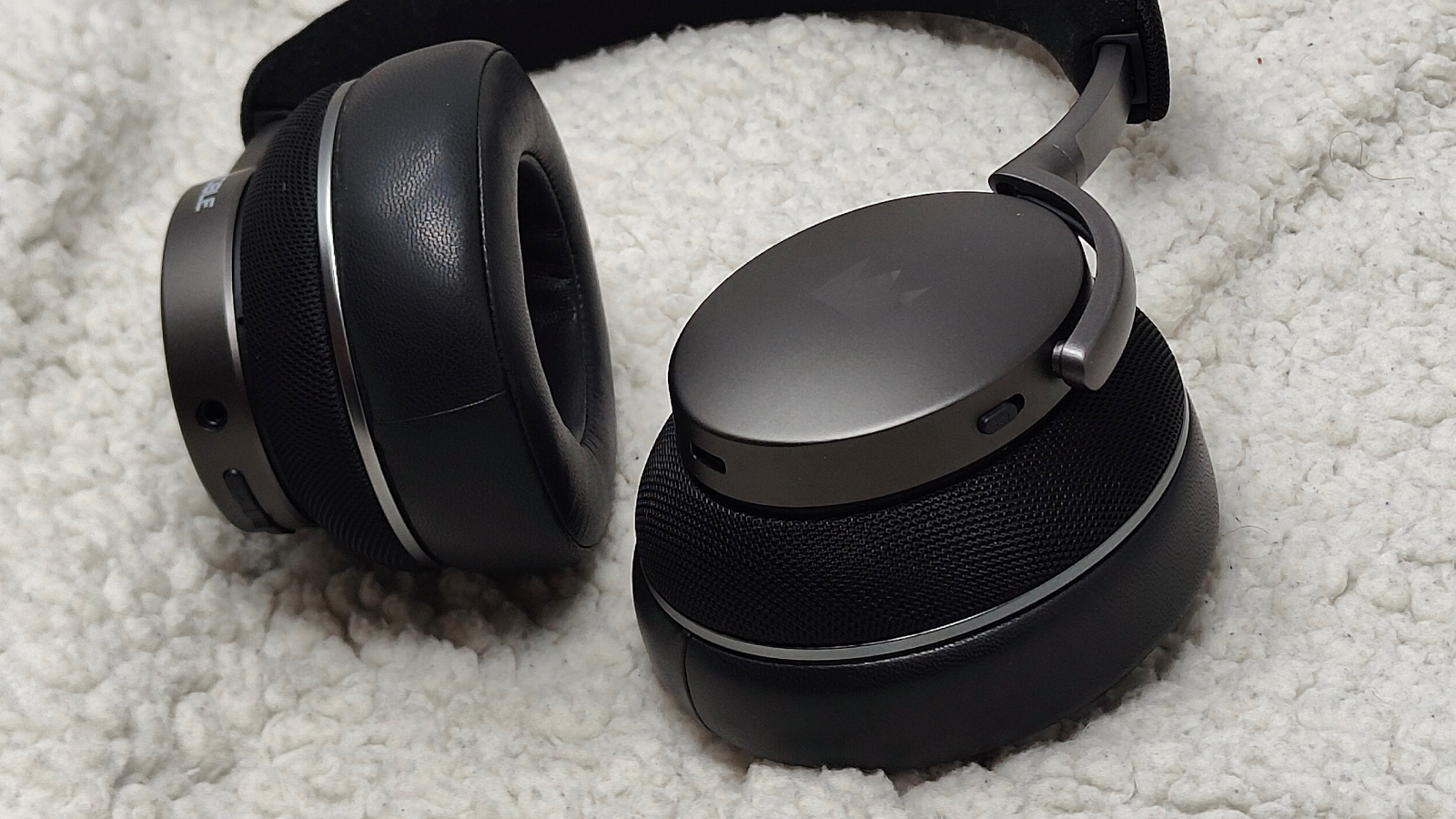
(Image credit: Future)
Audio tuning is lovely and balanced in the Apollo. Treble is sparkling and sensibly handled while mids, often overlooked in headphones, keep their head above water in the mix with a pronounced sound. For the most part bass is just as strong but I did find it falling just a tad quiet in the mix on occasion; it’s not something that all listeners will mind but I’d imagine dedicated bass fans will feel it. It depended on the song too and some tweaking with the equalizer can mostly offset it.
Unlike many other sonically-impressive headphones and earbuds, I didn’t have any volume troubles with the FoKus Apollo. They can go louder than I cared to test and I didn’t hear any peaking or distorting when I was at the upper limit of my comfort.
Audio fans will enjoy the Apollo’s compatibility with a range of codecs that includes LDAC, AAC, aptX, aptX HD and SBC. Unlike with most other headphones, Noble’s app doesn’t let you change the settings for these various codecs though.
Wired audio purists will also enjoy the versatility that the Apollo offers: you can use it entirely as a pair of wired cans if you prefer. As mentioned before the box has a 3.5mm cable as well as adaptors for ¼-inch and 4.4mm jacks so you’re sorted for a range of devices.
- Sound quality: 5/5
Noble FoKus Apollo review: Value
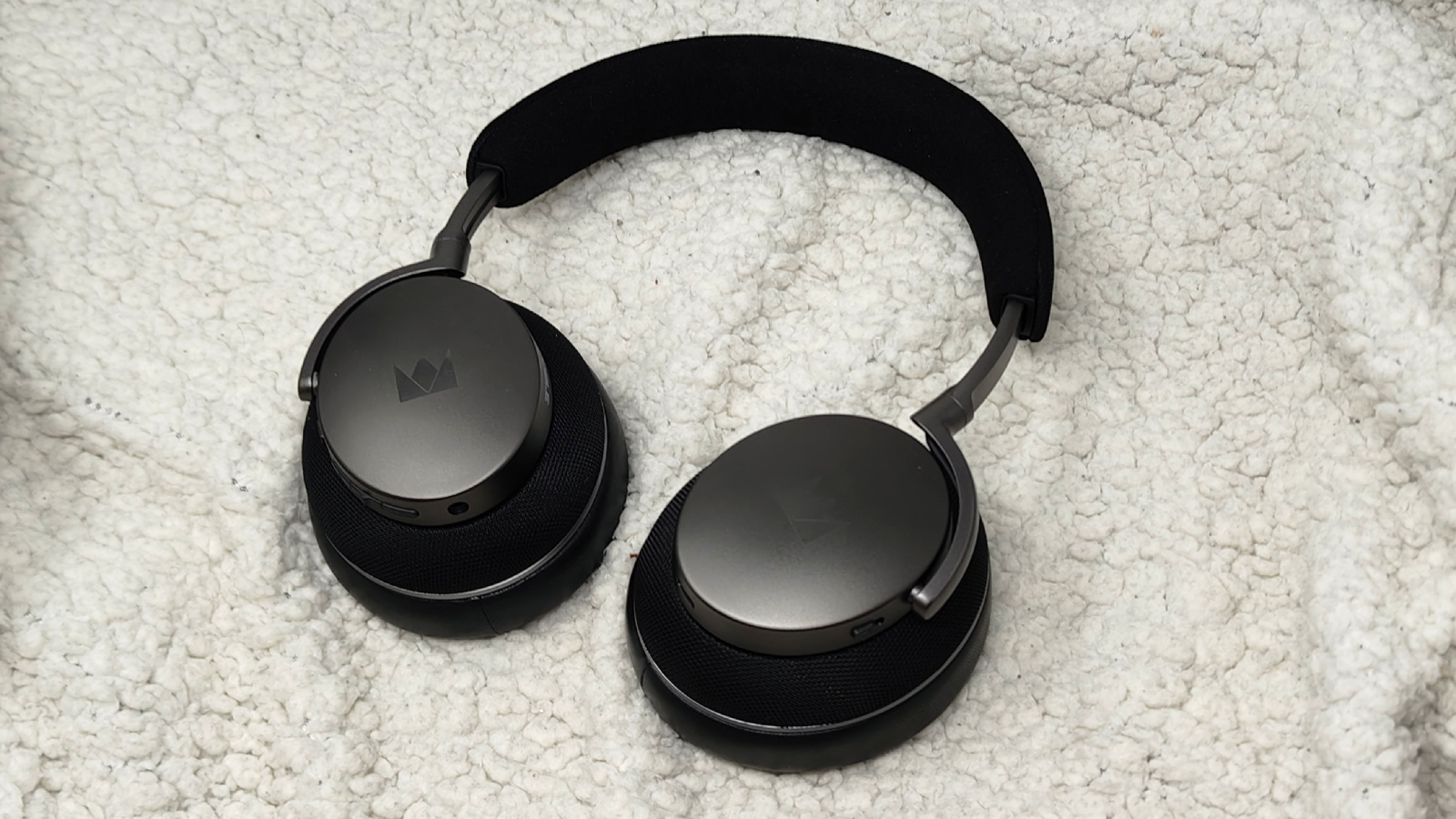
(Image credit: Future)
- Prohibitively expensive for many buyers
- In-box peripherals and case add value
Do 649/£589/AU649 / £589 / AU649/£589/AU999 headphones really present value for money? It’s hard to make the argument that they do because no matter how incredibly the sound quality is, you can still pick up great-sounding cans for a fifth of the price.
Noble does its best to tip the scales, to its credit. The inclusion of a hardy carry case and loads of useful extra cables and adaptors does ensure that you don’t need to spend a cent more on your audio purchase.
I can’t imagine headphones that sound this good costing less, but money-conscious buyers can easily save by settling on audio quality.
- Value: 3.5/5
Should I buy the Noble FoKus Apollo?
Swipe to scroll horizontally
Noble FoKus Apollo scorecard
| Attributes | Notes | Rating |
|---|---|---|
| Features | A fantastic battery life makes up for a middling feature set. | 3.5/5 |
| Design | The divisive look of the Apollo combined with the weight might put people off. | 3/5 |
| Sound quality | These sound phenomenal! | 5/5 |
| Value | As expensive headphones go, Noble improves the value situation with some in-box extras. | 3.5/5 |
Buy them if…
You use multiple audio players
The range of supported codecs and in-box adaptors makes the Apollo wonderfully versatile for a range of audio devices and apps.
You need a long-lasting battery Turn ANC off and you get 80 hours of listening time - that's over 3 days straight! It's a perfect companion for long journeys..
Don’t buy them if…
You're on a budget In no universe are the FoKus Apollos budget headphones, so if you don't want to break the bank, look elsewhere.
Audio quality isn't your top feature Audio quality isn't always the most important aspect of headphones, and if you won't notice the bells and whistles of the Apollo, you don't need to pay for it..
Noble FoKus Apollo review: Also consider
Swipe to scroll horizontally
| | Noble FoKus Apollo | Bowers & Wilkins PX8 | Bose QuietComfort Ultra Headphones | | | ------------------------- | --------------------------------------- | -------------------------------------- | --------------------------- | | Price | 649/£589/AU649 / £589 / AU649/£589/AU999 | 699/£599/AU699 / £599 / AU699/£599/AU1,150 | 429/£449/AU429 / £449 / AU429/£449/AU649 | | Drivers | 40mm dynamic + 14.5mm planar magnetic | 2x40mm dynamic | 35mm | | Active noise cancellation | Yes | Yes | Yes | | Battery life | 60 hours (ANC on) | 80 hours (ANC off) | 30 hours (ANC on) | 24 hours (ANC on) | | Weight | 327g | 320g | 250g | | Connectivity | Bluetooth 5.3 | 3.5mm jack | Bluetooth 5.2 | Bluetooth 5.3 | 2.5mm jack | | Waterproofing | NA | NA | NA |
Bowers & Wilkins PX8 review We gave 5 stars to these B&W cans in our review. They cost just a touch more than the Apollo, sound fantastic and have a similar build to the Noble – but they look more expensive.
See our full Bowers & Wilkins PX8 review
Bose QuietComfort Ultra Headphones
For less than the FoKus Apollo you can pick up these great-sounding headphones that have phenomenal ANC and a lightweight body. You'll make a small compromise on sound-quality, but if that's not your main priority they're a great alternative.
See our full Bose QuietComfort Ultra Headphones review
How I tested the Noble FoKus Apollo
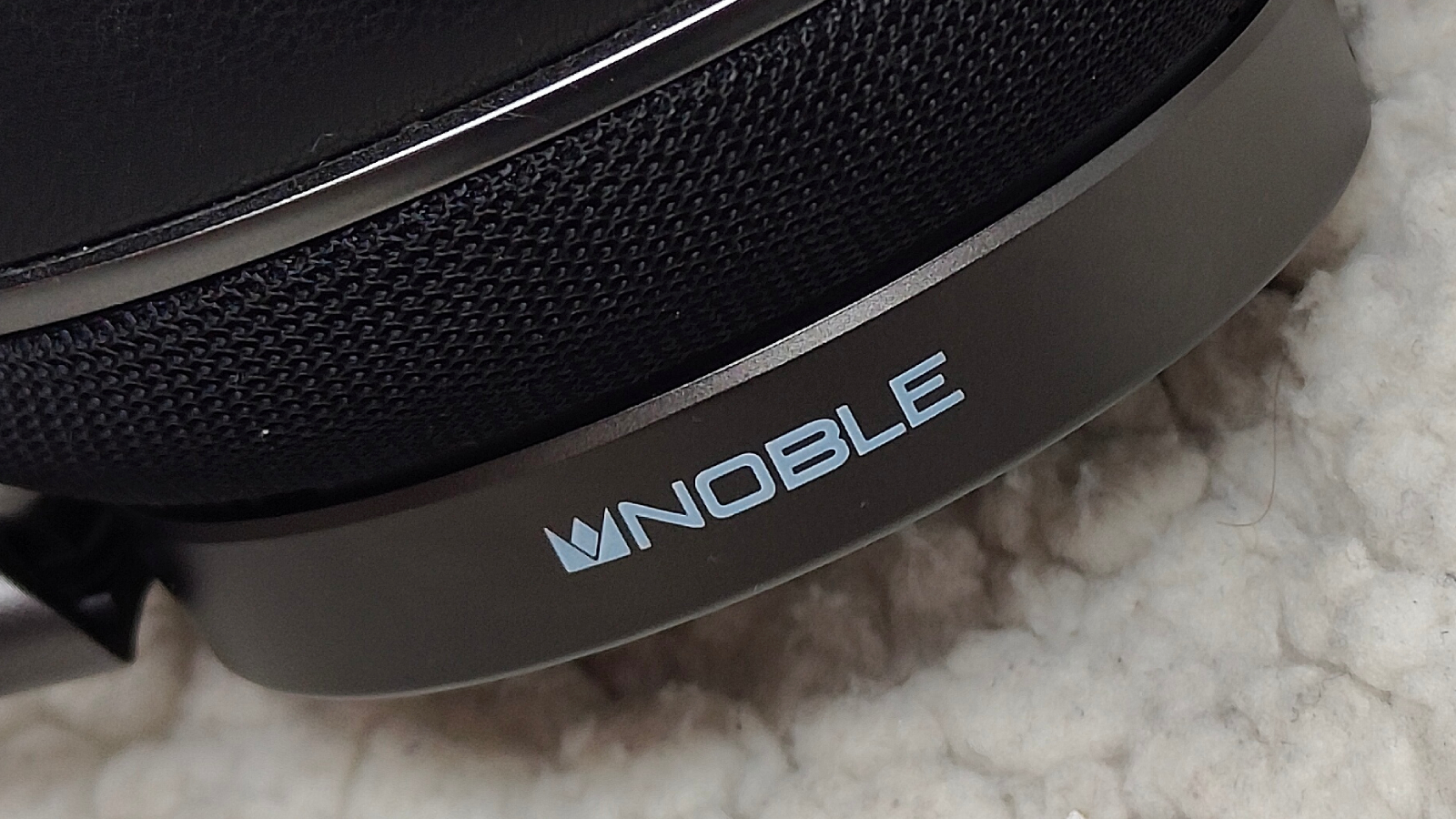
(Image credit: Future)
- Tested for one month
- Tested at home and on various excursions
The Noble FoKus Apollo enjoyed a four-week testing period, enough to put them through their paces in some rigorous tests. I mainly used the headphones while connected to an Android phone over Bluetooth but I also tested them alongside an iPad and a Windows computer via Bluetooth and 3.5mm cables.
I tested the Apollo in a range of environments including my office, home, coffee shops, on buses and coaches, and also on walks around my neighborhood. As I mentioned before I mainly used them for audio streaming but used them on my iPad to stream basically the entire run of Shogun and a few movies.
I've been reviewing gadgets for TechRadar for five and a half years now, including having tested countless headphones and earbuds.
- First reviewed in October 2024
- Read TechRadar's reviews guarantee

Tom Bedford was deputy phones editor on TechRadar until late 2022, having worked his way up from staff writer. Though he specialized in phones and tablets, he also took on other tech like electric scooters, smartwatches, fitness, mobile gaming and more. He is based in London, UK and now works for the entertainment site What To Watch.
He graduated in American Literature and Creative Writing from the University of East Anglia. Prior to working on TechRadar, he freelanced in tech, gaming and entertainment, and also spent many years working as a mixologist.